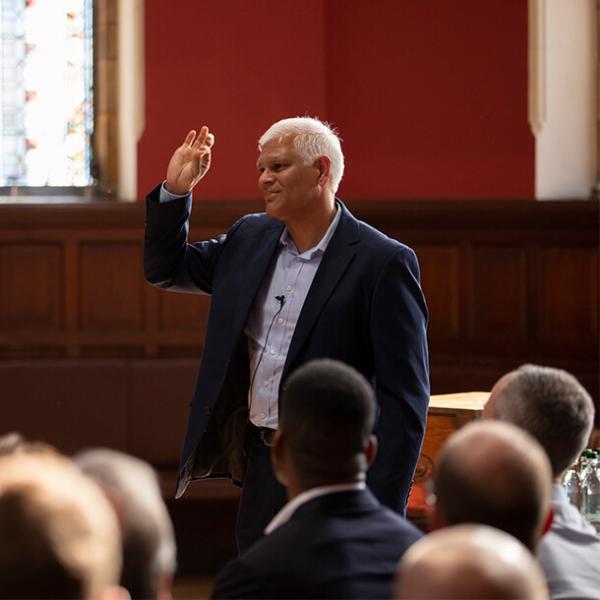About the event
Recent scrutiny of social media and technology giants made the Oxford Union debate – ‘Tech for good is a false promise’ - particularly timely.
Hosted by the Skoll Centre for Social Entrepreneurship as part of the annual Skoll World Forum, arguing for the motion were Tanya O’Carroll from Amnesty International’s global technology and human rights programme, Dr Mariarosaria Taddeo of the Oxford Internet Institute and Sean Hinton of Open Society Foundations. In opposition were Tom Adams of 60 Decibels, Chi Nnadi of Sela Technologies and Shashi Buluswar of the Institute for Transformative Technologies.
At the Oxford Union, in front of a packed audience from the social entrepreneurship world, the debate focussed on the positive or destructive powers of technology. Is social media unleashing democracy or destroying it? Will artificial intelligence unlock new opportunities for the world’s poorest, or will it reinforce bias and inequality? Technology is transforming the world, but how do we ensure that it is for the better?
Opening in favour of the motion, Tanya O’Carroll concentrated on how the relentless growth of technology has intruded into the privacy of individuals. Her argument was that many of the big tech companies are utilising this private data, and there is little done to protect and stop individuals from being exploited. In response, Tom Adams put forward the potential of technology as a tool for public trust, transforming capitalism through impact investing and social accounting.
Dr Mariarosaria Taddeo described the dangers of the unintended consequences of technology, even when the initial intention was for good. Her argument focussed on the need for society to realise the potential of technology to do good, and that technology on its own would not do this. Chi Nnadi used the example of the beneficial effect of technology in the Niger Delta. Here, WhatsApp has been used by the local population to limit the effects of oil pollution – illustrating the unlimited potential of how technology can be moulded for different uses.
The traditional floor debate was opened to the audience, inviting three contributions each for and against the motion. Closing the debate, Sean Hinton argued that technology was increasing inequality, disproportionally affecting the poor and old, representing a fundamental failure. In response, Shashi Buluswar held up a seed, a vial of vaccine vial and a DNA reader as examples of technologies that are making the world a better place by saving and improving lives. It was fitting end to a fascinating debate and helped secure a victory for the ‘no’s’ against the motion that ‘Technology for good is a false promise’.
Thank you to all the speakers, the audience, and the Oxford Union for a fascinating debate.

